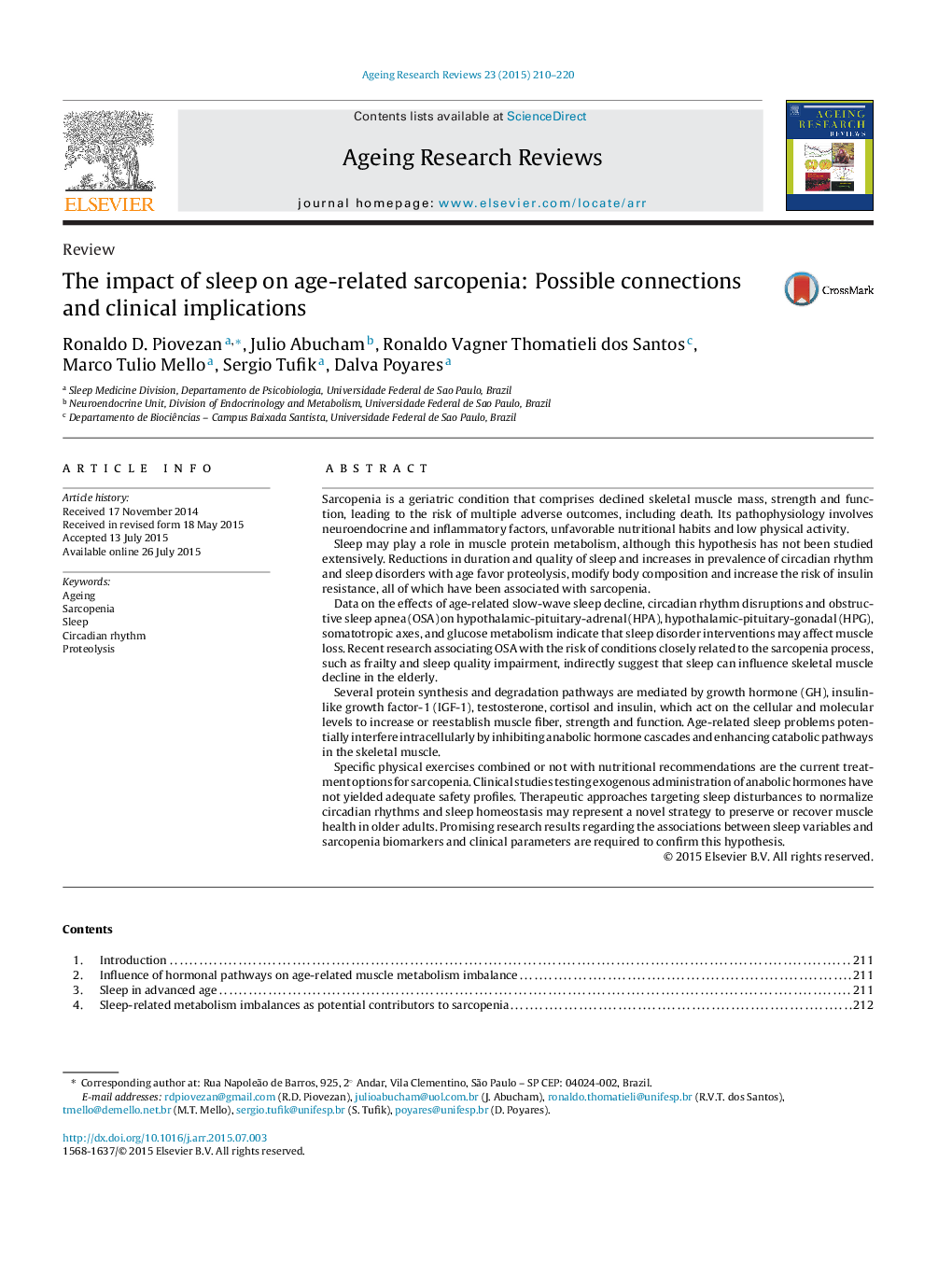| کد مقاله | کد نشریه | سال انتشار | مقاله انگلیسی | نسخه تمام متن |
|---|---|---|---|---|
| 1902219 | 1045721 | 2015 | 11 صفحه PDF | دانلود رایگان |
• Sarcopenia has a multifactorial pathophysiology in which sleep may be involved in several anabolic and catabolic pathways.
• Age-related sleep deterioration acts on neuroendocrine factors associated with sarcopenia development.
• Poor sleep and sleep disorders may also increase sarcopenia risk through insulin resistance mechanisms.
• Further research should establish potential connections between sleep and age-related muscle loss.
• After confirming this hypothesis, intervention of sleep disturbances may represent a strategy to preserve or recover muscle mass in older adults.
Sarcopenia is a geriatric condition that comprises declined skeletal muscle mass, strength and function, leading to the risk of multiple adverse outcomes, including death. Its pathophysiology involves neuroendocrine and inflammatory factors, unfavorable nutritional habits and low physical activity.Sleep may play a role in muscle protein metabolism, although this hypothesis has not been studied extensively. Reductions in duration and quality of sleep and increases in prevalence of circadian rhythm and sleep disorders with age favor proteolysis, modify body composition and increase the risk of insulin resistance, all of which have been associated with sarcopenia.Data on the effects of age-related slow-wave sleep decline, circadian rhythm disruptions and obstructive sleep apnea (OSA) on hypothalamic-pituitary-adrenal (HPA), hypothalamic-pituitary-gonadal (HPG), somatotropic axes, and glucose metabolism indicate that sleep disorder interventions may affect muscle loss. Recent research associating OSA with the risk of conditions closely related to the sarcopenia process, such as frailty and sleep quality impairment, indirectly suggest that sleep can influence skeletal muscle decline in the elderly.Several protein synthesis and degradation pathways are mediated by growth hormone (GH), insulin-like growth factor-1 (IGF-1), testosterone, cortisol and insulin, which act on the cellular and molecular levels to increase or reestablish muscle fiber, strength and function. Age-related sleep problems potentially interfere intracellularly by inhibiting anabolic hormone cascades and enhancing catabolic pathways in the skeletal muscle.Specific physical exercises combined or not with nutritional recommendations are the current treatment options for sarcopenia. Clinical studies testing exogenous administration of anabolic hormones have not yielded adequate safety profiles. Therapeutic approaches targeting sleep disturbances to normalize circadian rhythms and sleep homeostasis may represent a novel strategy to preserve or recover muscle health in older adults. Promising research results regarding the associations between sleep variables and sarcopenia biomarkers and clinical parameters are required to confirm this hypothesis.
Journal: Ageing Research Reviews - Volume 23, Part B, September 2015, Pages 210–220
